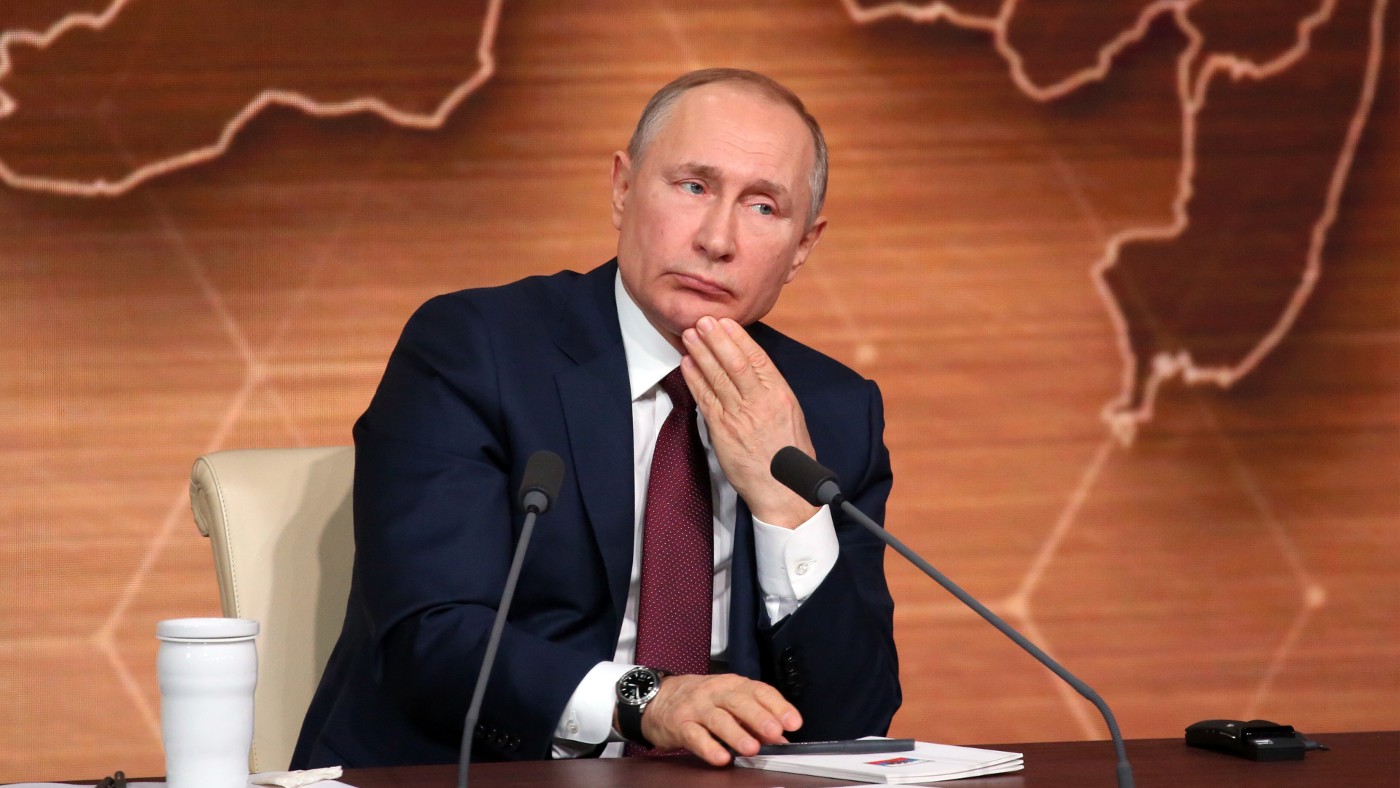Air-raid sirens in Ukraine despite Russian ‘ceasefire’
Kyiv and Washington had dismissed Putin’s call for a short Christmas truce

A free daily email with the biggest news stories of the day – and the best features from TheWeek.com
You are now subscribed
Your newsletter sign-up was successful
Air-raid sirens have been heard across parts of Ukraine after Kyiv rejected Vladimir Putin’s call for a Christmas truce.
Russia’s president had ordered his defence minister to impose a 36-hour ceasefire on the Ukrainian frontline, to coincide with the Russian Orthodox Christmas.
Putin asked Ukraine to reciprocate so that the “large numbers of Orthodox believers [who] reside in areas where hostilities are taking place” could celebrate Christmas Eve on Friday and Christmas Day on Saturday.
The Week
Escape your echo chamber. Get the facts behind the news, plus analysis from multiple perspectives.

Sign up for The Week's Free Newsletters
From our morning news briefing to a weekly Good News Newsletter, get the best of The Week delivered directly to your inbox.
From our morning news briefing to a weekly Good News Newsletter, get the best of The Week delivered directly to your inbox.
However, Kyiv quickly rejected the request. Ukraine’s presidential adviser, Mykhailo Podolyak, said there could be no “temporary truce” and called the proposal a “propaganda gesture” and a “trivial ploy”.
In his nightly video address, Ukraine’s president Volodymyr Zelenskyy said that Russia wanted to use the truce as a cover to stop Ukrainian advances in the eastern Donbas region.
US President Joe Biden also expressed doubts, telling the media that he was “reluctant to respond to anything Putin says”. He added that he found the proposal “interesting” because Putin “was ready to bomb hospitals and nurseries and churches on the 25th and New Year’s”.
At various points during the war, Russian authorities have ordered “limited, local truces to allow civilian evacuations or other humanitarian purposes”, wrote Andrew Meldrum for Associated Press, but yesterday’s order was “the first time Putin has directed his troops to observe a cease-fire throughout Ukraine”.
A free daily email with the biggest news stories of the day – and the best features from TheWeek.com
However, added Meldrum, it “wasn’t clear whether hostilities would actually pause on the 1,100-kilometer (684-mile) front line or elsewhere”.
CNN said that fighting had continued this morning and that it had “witnessed incoming and outgoing artillery fire near the front line around Bakhmut on Friday”. Air-raid alerts were reported in parts of Ukraine, said The Guardian, just hours after Russia declared the temporary ceasefire.
The wording and sudden nature of the proposed ceasefire fuelled suspicion, with analysts “suggesting that the cease-fire was an attempt by Putin to further damage Ukraine’s reputation at home and maybe even abroad”, said NBC News.
“Putin cannot reasonably expect Ukraine to meet the terms of this suddenly declared ceasefire and may have called for the ceasefire to frame Ukraine as unaccommodating and unwilling to take the necessary steps toward negotiations,” the Institute for the Study of War, a Washington-based think tank, argued.
Chas Newkey-Burden has been part of The Week Digital team for more than a decade and a journalist for 25 years, starting out on the irreverent football weekly 90 Minutes, before moving to lifestyle magazines Loaded and Attitude. He was a columnist for The Big Issue and landed a world exclusive with David Beckham that became the weekly magazine’s bestselling issue. He now writes regularly for The Guardian, The Telegraph, The Independent, Metro, FourFourTwo and the i new site. He is also the author of a number of non-fiction books.
-
 The ‘ravenous’ demand for Cornish minerals
The ‘ravenous’ demand for Cornish mineralsUnder the Radar Growing need for critical minerals to power tech has intensified ‘appetite’ for lithium, which could be a ‘huge boon’ for local economy
-
 Why are election experts taking Trump’s midterm threats seriously?
Why are election experts taking Trump’s midterm threats seriously?IN THE SPOTLIGHT As the president muses about polling place deployments and a centralized electoral system aimed at one-party control, lawmakers are taking this administration at its word
-
 ‘Restaurateurs have become millionaires’
‘Restaurateurs have become millionaires’Instant Opinion Opinion, comment and editorials of the day
-
 Putin’s shadow war
Putin’s shadow warFeature The Kremlin is waging a campaign of sabotage and subversion against Ukraine’s allies in the West
-
 Alexei Navalny and Russia’s history of poisonings
Alexei Navalny and Russia’s history of poisoningsThe Explainer ‘Precise’ and ‘deniable’, the Kremlin’s use of poison to silence critics has become a ’geopolitical signature flourish’
-
 What happens now that the US-Russia nuclear treaty is expiring?
What happens now that the US-Russia nuclear treaty is expiring?TODAY’S BIG QUESTION Weapons experts worry that the end of the New START treaty marks the beginning of a 21st-century atomic arms race
-
 Epstein files topple law CEO, roil UK government
Epstein files topple law CEO, roil UK governmentSpeed Read Peter Mandelson, Britain’s former ambassador to the US, is caught up in the scandal
-
 Iran and US prepare to meet after skirmishes
Iran and US prepare to meet after skirmishesSpeed Read The incident comes amid heightened tensions in the Middle East
-
 Israel retrieves final hostage’s body from Gaza
Israel retrieves final hostage’s body from GazaSpeed Read The 24-year-old police officer was killed during the initial Hamas attack
-
 China’s Xi targets top general in growing purge
China’s Xi targets top general in growing purgeSpeed Read Zhang Youxia is being investigated over ‘grave violations’ of the law
-
 Ukraine, US and Russia: do rare trilateral talks mean peace is possible?
Ukraine, US and Russia: do rare trilateral talks mean peace is possible?Rush to meet signals potential agreement but scepticism of Russian motives remain